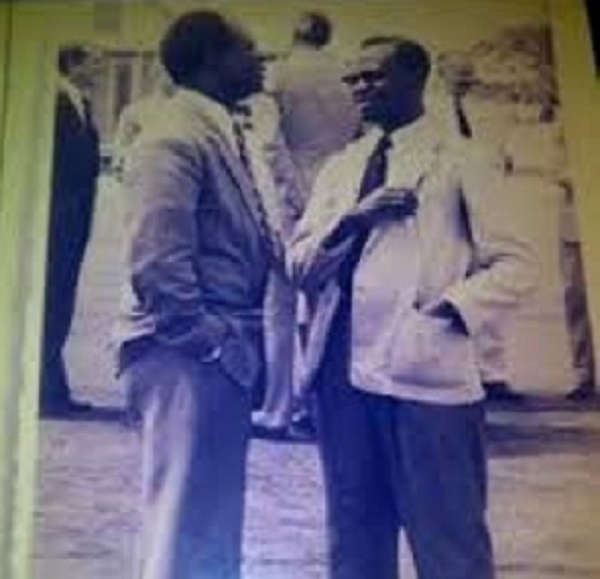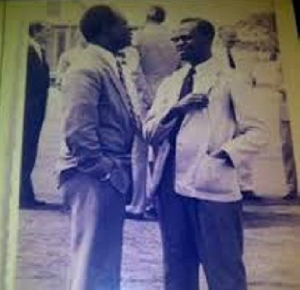 Dr. Kwame Nkrumah (Left) in a conversation with Dr. Kofi Abrefa Busia (Right)
Dr. Kwame Nkrumah (Left) in a conversation with Dr. Kofi Abrefa Busia (Right)
They may not have been the closest of friends, but one unique experience connects them; both endured military overthrows of their governments.
While this shared experience could have fostered mutual understanding and discussion, Ghana’s first president, Osagyefo Dr. Kwame Nkrumah, chose a more mocking approach in ‘consoling’ Dr Kofi Abrefa Busia after the latter’s own political downfall.
In 1966, Kwame Nkrumah was the first to experience a military coup while he was away in Hanoi, Vietnam, on a national assignment for Ghana. His government had, until then, faced severe criticism from figures like Dr. Kofi Busia criticisms that ultimately contributed to the military’s decision to seize power.
With public support for Nkrumah dwindling, his overthrow was met with widespread celebration across Ghana. So when Busia, one of his staunchest critics, later fell victim to a coup himself, Nkrumah could not resist commenting on the irony of the situation.
In a letter written to Dr. Kofi Abrefa Busia in 1972, shortly after Busia’s government was ousted, Nkrumah pointed out the striking similarities in their fates.
“It is rather significant that most of the evils for which my government and I were accused those that served as justification for my overthrow were apparently the same reasons that motivated the army to remove you from power,” Nkrumah wrote.
“I am sure you now realize that those who criticize others without just cause often end up as victims of their own circumstances. You will also appreciate the truth of the saying, ‘Those who sow the wind reap the whirlwind.’ After working so hard to destroy others, you may be surprised to find that you have, in the process, destroyed yourself.”
Adding further sting to his words, Nkrumah detailed the very accusations that had been leveled against his administration—many of which, he argued, had come back to haunt Busia. He also shared his observations on the Busia government, explaining why he believed the Ghanaian people had lost confidence in its leadership.
“Since my government was overthrown six years ago and since you assumed office in late 1969, I have been closely watching events in Ghana. I often felt that the way you handled national affairs relying so heavily on colonialists, imperialists, capitalists, and neo-colonialists would ultimately lead to your downfall. And now, you find yourself abandoned by the very imperialists and capitalists who once propped you up.
“Your handling of the Aliens Compliance Order in which, for the first time in African history, a neighboring government expelled fellow Africans like cattle in open trucks was disgraceful. Your so-called ‘dialogue’ with the Apartheid regime, where you sought to create the impression that you alone could influence the racists in South Africa, was equally misguided. These, along with other disastrous policies too numerous to mention here, sealed your fate.”
Nkrumah then took his mockery a step further by reminding Busia of something he had once championed; his campaign for Busia to be elected Ghana’s Prime Minister. However, Nkrumah explained, this endorsement had been driven by a deeper motive.
“You may recall that before the general elections in 1968, I broadcast on Conakry Radio, urging my people in Ghana to vote for none other than you.
“I do not know how you interpreted this, but I suspect you assumed it was an endorsement perhaps that I was placing you above other candidates. If that was your understanding, then I regret to inform you that you completely miscalculated.
“My true reason for urging Ghanaians to vote for you was not because I believed you were better than the other candidates, but because I knew that, as a political weakling, you would eventually expose your own shortcomings.”
Before concluding his letter, Dr. Kwame Nkrumah expressed his wish to have met Busia in person so he could have delivered his final verdict face-to-face.
“It might have been a good idea for us to meet, as we did in Monrovia last year. Then, I would have told you directly, ‘Kofi, I told you that you would be a complete failure in politics.’”
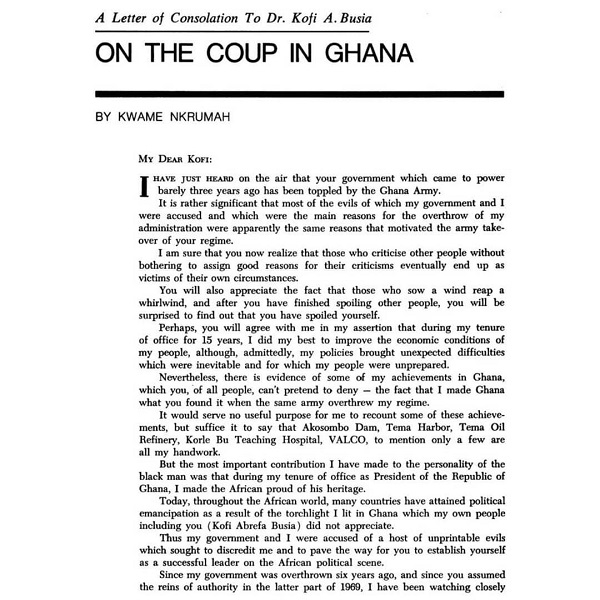
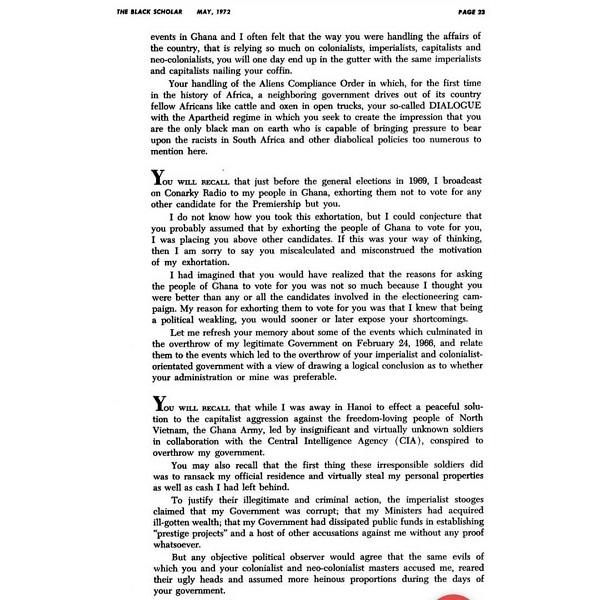
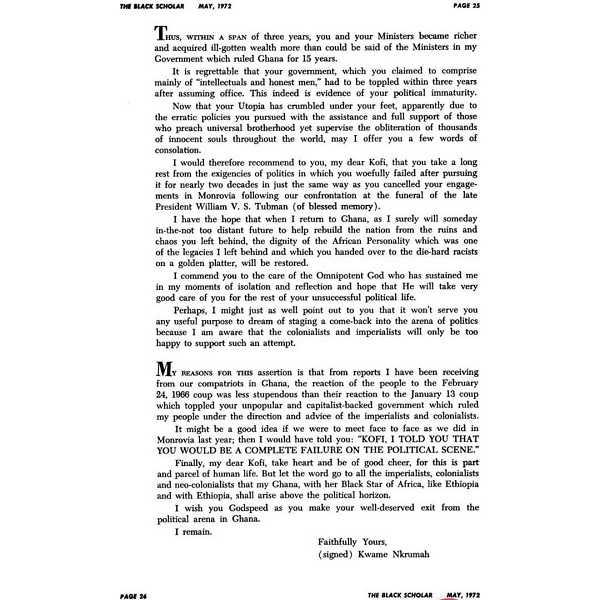
This story was first published by GhanaWeb.com on January 19, 2023
